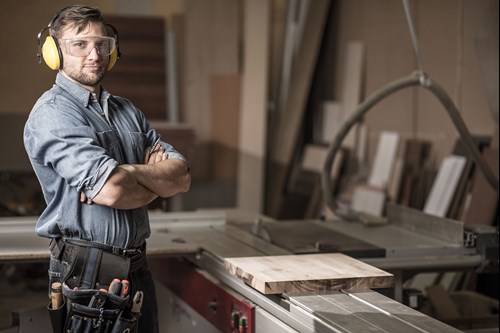Why men still find it so hard to open up about mental health
Date: Thursday 24 Oct 2019
Male stereotyping continues to be a barrier to better emotional wellbeing
By Catherine Catto

The dismissive, ‘pull yourself together’ attitude towards mental health that was sadly the norm until recently has taken longer to dispel when it comes to men.
Even the language used in terms of mental wellbeing is a barrier to more enlightened attitudes towards men coming forward to ask for support. Phrases like ‘man-up’ and ‘act like a man’ when confronted with emotional outpourings add layers of embarrassment and guilt onto people who badly need to express what they are feeling.
Bottling up emotions and the stiff upper lip attitude that many men continue to exhibit compounds poor mental health and creates some worrying statistics.
Figures show that men are much less likely to access psychological therapies than women, with one study showing that males in England make up only 36% of referrals.
Research shows that men are also less likely to disclose their mental health issues to family members or friends and are more likely to use potentially harmful coping methods, such as alcohol or drugs in response to distress.
There is research to suggest that men will seek and access help when they feel that the support being offered meets their needs and is easily accessible, meaningful and engaging.
However, when this is not forthcoming, the statistics are even worse. Of the 5,821 suicides recorded in Britain in 2017, 75% were males. Suicide represents the largest cause of death for men under 50 and higher rates of suicide are also found in minority communities, including gay men, war veterans, men from BAME backgrounds and those in poverty.
One vulnerable group is low-income men over the age of 50, which experts regard as vulnerable due to a lack of employment prospects for this age group and a subsequent lack of self-esteem.
In a paper discussing male mental health, Britain’s The Work Foundation argues that the structural shift in how men are employed over recent years – and what industries they largely work in – has had a deep effect on male mental health.
The organisation says: “It is clear that changes to the UK labour market in recent decades have created a predominantly male displaced workforce which, by and large, has struggled to either find work of similar quality or any work at all.
“Work is considered central to male masculinity and, as such, these structural changes have had significant implications for men’s mental health. “Furthermore, men often work in jobs that pose threats to their physical health and safety, frequently characterised by low pay and insecurity, requiring them to work for extended periods away from family. All of this poses particular challenges for men’s physical and, in particular, mental health.”
UK charity The Mental Health Foundation has long recognised that men have different needs when it comes to their mental health and says males still find it difficult to seek help for their problems.
The charity says: “The ways in which men and women have been traditionally expected to behave may play a role in mental health.
“For men, societal expectations about how men ‘should’ behave and what masculinity is, includes the expectation that men be the breadwinners of their family, and that they display what have traditionally been perceived as masculine traits like strength, stoicism, dominance and control.
“While wanting to feel, and feeling, strong and in control are not inherently negative things, some research suggests that a reliance on these traditional ideals as what it means to be ‘a man’ may negatively impact men’s mental health.
“The research on this suggests that behaving in a way that conforms to these expectations, specifically expectations of self-reliance and power over others, is associated with increased distress and poorer mental health.
“Some research also suggests that men who feel as though they are unable speak openly about emotions may be less able to recognise symptoms of mental health problems in themselves, and less likely to reach out for support.”
Men make up 40% of patients at UK mental health care provider The Priory Group. In a survey, four in ten of their male patients said they would only look for therapy if they were contemplating harming themselves.
“The survey highlighted that for 40% of men, it would take thoughts of suicide or self-harm to compel them to seek professional help,” says the provider.
“Encouragingly, 60% of men polled have shared their feelings of anxiety with someone at some point. Based on the 77% who admit to suffering mental health issues, however, there remains a number of men living in the UK who feel unable to speak to a friend or professional about potentially serious symptoms.”

Andy’s Man Club is an organisation based in the north of England which is breaking down the stigma of men talking about their mental health.
It is run by professional rugby player Luke Ambler, whose brother-in-law Andy killed himself at the age of 23. The club organises talking groups which encourage men to open up about their problems in a down-to-earth, male-only, friendly and supportive environment.
Luke believes there are three reasons why men find it hard to speak up about the emotional and mental health problems they face.
He told men’s lifestyle website, The Book Of Man, that ‘burden’, ‘weakness’ and ‘embarrassment’ were the three barriers to seeking help.
He said: “With burden, I can guarantee you’ve been through some shit in your life and you’ve held it in from your missus or boyfriend, or your brother, or your mum and dad.
“You won’t tell them because you think they have their own shit to deal with, so they don’t need to burden them with that. We’ve all done that.
“The next is weakness. From the historic idea that men used to go out and hunt meat while the women nurtured the kids and got the fire ready – I even look back at my little Irish nana, she would get stews and pies together while my grandad went to work.
“But social evolution changes things. Long gone are the days when we used to go out and hunt meat, long gone are the days when we had to have that strong mask on. We can show weakness. And actually it’s not weak, it actually takes more of a man in my eyes.
“It takes greater strength to open up because it’s a lot harder to do. Anyone can bottle it up. But to be able to say, ‘Listen, I’m struggling’. That takes real strength.
“And the third one is embarrassment. We live in what I call a ‘lad culture’. A banter culture, where everyone is trying to have little jibes at each other, everyone’s trying to find something to have a bit of fun about, when actually there’s nothing to be embarrassed about with these issues.
“I’ve not met a human being on this planet that hasn’t been through a storm, is going through a storm or there’s a storm coming. So there’s nothing to be embarrassed about, you’re not going through a unique problem. Ask your next-door neighbour, ask your work colleague, and you’ll find they’ve also struggled or are currently struggling.”
Sam Ortyl suffered from anxiety and panic attacks for eight years and, at his lowest ebb, he contemplated suicide.
He is now a life coach and has just published a book, Anxiety: Curse Or Blessing, about his struggles with mental health.
Sam reiterates that the stereotyping of men is a barrier to them overcoming problems with their mental health.
“I think that it is harder for men to open up about mental health problems as it is associated with weakness,” says Sam, 34, who lives in Swindon, England.
“When we grow up, we learn that we need to be tough, that men don’t cry and we just need to man up, suck it up and keep going. Because of that, we don’t talk about our problems, feelings, emotions, but instead, just hide behind the mask.
“Men build an ego to pretend that we are strong and everything is great. I do believe that a man should still strive to be strong but I also believe that part of that is allowing yourself to be vulnerable and reach for support if you need help. Accepting both sides of your personality is the key to building strong mentality.
“From my experience, another contributor is the fact that a lot of conversations about mental health are very clumsy and patronising.
“When you finally pluck up the courage to open up, to reach for help and have a therapist smother you with their pity, and talk to you like were a five-year-old kid who just broke a vase, you will be less likely to talk about it again. That kind of conversation only reinforces your victim mentality instead of empowering you to get through your struggle.
“I think that the key is to find the right person to talk to, not just anyone. Sometimes people that we think will be the best to talk to, like family members and friends, are actually the worst choice. Having your best interest in mind they may try to give you advice that will not work for you or try to play down your problems.
“My best advice would be to find someone who can relate to your challenges and have the experience and knowledge to help you with your recovery. You may think that you will feel weak when you start talking about your mental health problems but you will actually feel empowered and a big weight will be lifted off your shoulders.
“A problem shared is a problem halved!”
Sam’s book is available in kindle edition on Amazon at https://www.amazon.co.uk/Anxiety-Curse-blessing-Sam-Ortyl-ebook/dp/B07Y5GYDNR or as a free PDF from his website, www.samortyl.comFor more information on Andy’s Man Club, go to www.andysmanclub.co.uk
Video: Why Men NEED To Focus On Mental Health... (A Panel With David Gandy)

